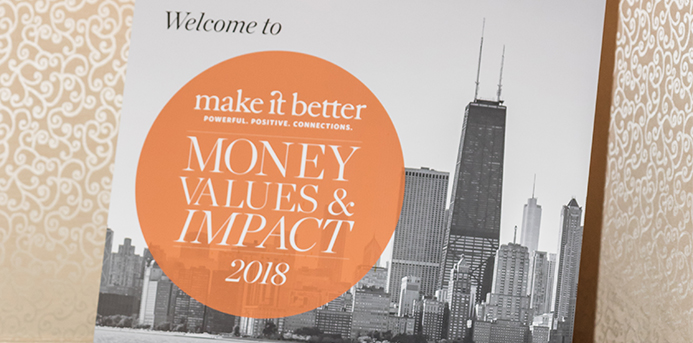Speakers at Make It Better’s Money, Values and Impact summit on April 17 packed a powerful punch with humor and tales from the financial front, guiding attendees on how to maximize social impact with capital investments.
Some 170 guests ranging from foundation and corporate leaders to ultra high net wealth managers to members of the Tiffany Circle of the American Red Cross, who traveled from cities across the eastern half of the US to attend, were treated to a curated, heavy-hitting lineup of presenters who spoke thematically about the changing landscape of sustainable finance and impact investment. Morgan Stanley presented the event.
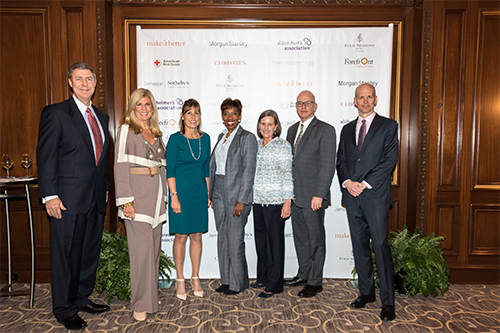
Susan B. Noyes, Make It Better Media Group founder and chief visionary officer, kicked off the evening by saying, “When you align your values with your money, you achieve greater impact not just in life and philanthropy, but also in business and finances.”
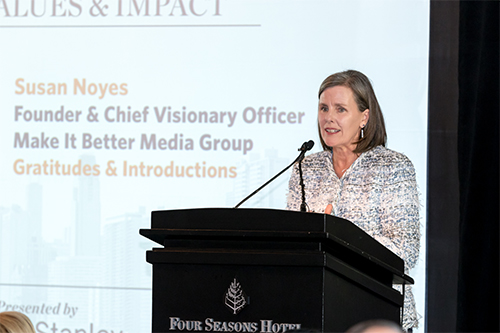
Steve Austin, managing director and regional director of Morgan Stanley Wealth Management, continued by suggesting that impact investing is in the midst of a great transformation. While socially responsible investors used to focus on targeted issues such as workplace safety, today’s investors are seeking a holistic approach and “building filters and lenses through which to create roadmaps” to guide their investments to maximize impact without sacrificing returns.
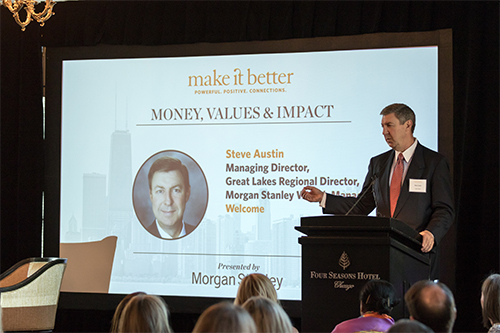
That process was further elucidated by Carla Harris, vice chairman and managing director at Morgan Stanley, who was interviewed on stage by Kathy Roeser, managing director and wealth advisor at Morgan Stanley. Harris spoke of the importance of ongoing self-reflection when deciding ones values and goals. Millennials, more than any other generation, are spearheading the evolution of impact investing by seeking workplace cultures and volunteer engagements that align with their values. Through their engagement, they have encouraged corporations to consider community as a fourth constituent (board of directors, customers, and shareholders being the traditional three constituents) to which they are accountable.
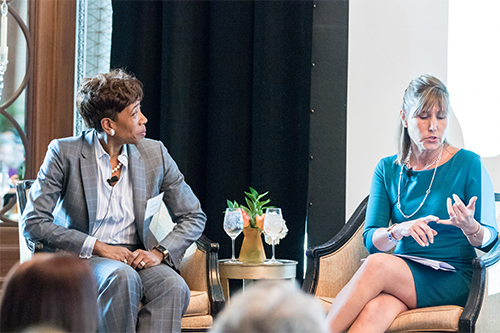
“It’s (Millennials’) standard to think about social, environmental, and sustainable practices,” Harris said, and encouraged members of the audience to view themselves as “institutions,” thereby developing philanthropic pillars (i.e. education, homelessness, etc.) to guide their investments.
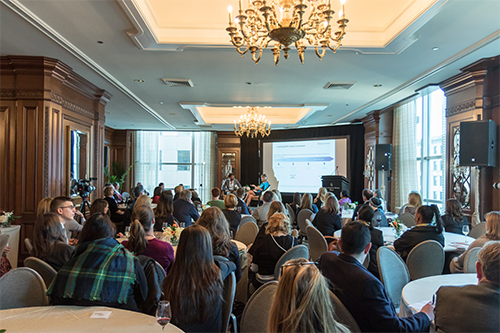
The Rockefeller family is a prime example of such a holistic approach, as discussed by Steven Zick, senior vice president and director at Christie’s. The upcoming Christie’s auction of the collections of David and Peggy Rockefeller is estimated to be the largest philanthropic auction ever. Zick spoke of the Rockefellers’ art investment strategy — they bought what they loved — and urged others to do the same as they consider building a collection.
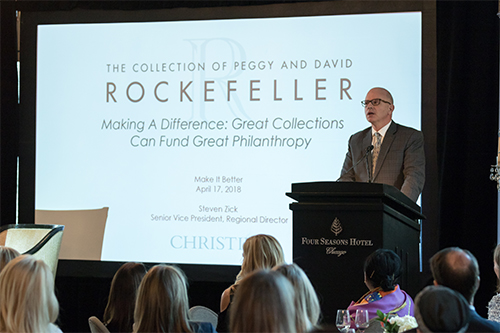
Melanie Sabelhaus, vice chair at the American Red Cross, impressed upon the audience the increasing power of women in philanthropy. Through her successful fundraising for the American Red Cross Tiffany Circle, Sabelhaus realized that women invest their “time, talent, and treasures,” they are the main household purchasers, and they invest, rather than donate, making deep impacts on society.
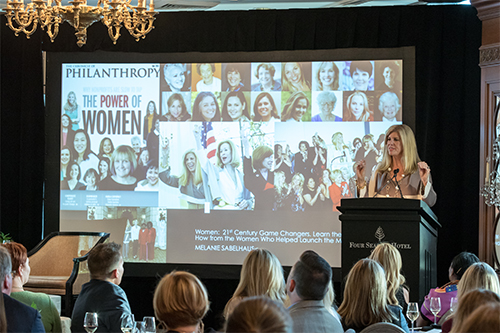
A main theme that all presenters spoke to was the importance of institutional knowledge, whether at the nonprofit level or the investment level. For example, when putting together a roadmap for impact investing, one should seek professional advice from wealth managers who have years of research and data at their disposal.
By the same token, when giving to a nonprofit, be “flexible and reliable,” according to Eric Weinheimer, president and CEO of Forefront, an association that represents people and organizations on both sides of the grant-making process. Those who work for a given nonprofit organization likely know best how to allocate the funds to make the biggest difference for their constituents, so a grant to a general operating fund will be give more flexibility to those running the operation.
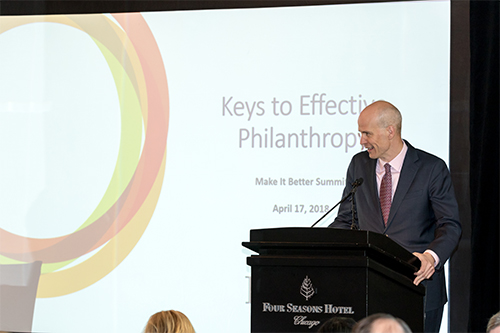
A quote from Andrew Carnegie summed up the evening’s message that giving and impact should be a deliberate process that can reap great rewards. “It is more difficult to give money away intelligently than to earn it in the first place.”
See more photos from Money, Values & Impact on our Facebook page, and subscribe to Make It Better’s Better Letter to be the first to see video content recapping the powerful presentations by all of the night’s incredible speakers.
More from Make It Better:
- 3 Questions to Ask Before You Give a Substantial Donation
- Why Your LinkedIn Profile is the Key to Your Next Job — and How to Improve Yours
- Impact Investing 101: 6 Ways to Align Your Investment Strategy With the Issues You Care About
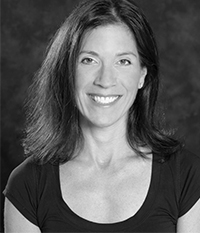 Susan Pasternak has worked as a journalist for more than two decades, reporting and writing on myriad subjects ranging from national health care policy to personal finance to head lice. Her work has been published in numerous consumer and business publications. Susan lives with her husband, three children, and dog Roxy in Highland Park. She also volunteers with Working Together, a Highwood/Highland Park organization that provides enrichment opportunities to under-resourced children in the community.
Susan Pasternak has worked as a journalist for more than two decades, reporting and writing on myriad subjects ranging from national health care policy to personal finance to head lice. Her work has been published in numerous consumer and business publications. Susan lives with her husband, three children, and dog Roxy in Highland Park. She also volunteers with Working Together, a Highwood/Highland Park organization that provides enrichment opportunities to under-resourced children in the community.
